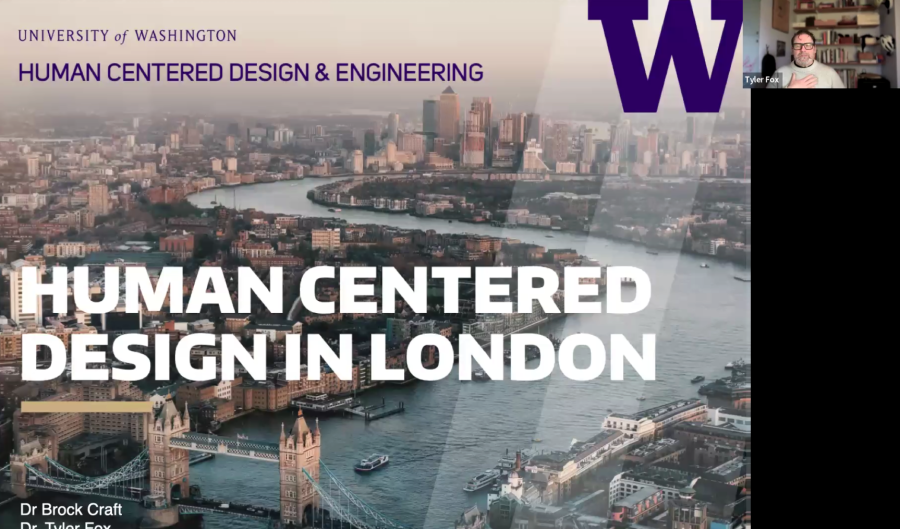HCDE STUDY ABROAD: DESIGN LONDON
EARLY FALL 2025
Explore critical practice rooted in London’s vibrant Design culture
Program dates: August 23 - September 13, 2025
UW credits: 5
Application deadline: February 15, 2025
Join Human Centered Design & Engineering faculty members Drs. Brock Craft and Tyler Fox on an international exploration of Experience Design. This three-week program includes seminar sessions, guest speakers, field trips, and critique sessions. It is open to undergraduates who have completed HCDE 303, and Master’s and PhD students from all design-related disciplines.
2025 London Information Session
Information Session hosted by study abroad program directors Brock Craft and Tyler Fox. Recorded January 22, 2025. Access with UW NetID.
Program Description
This three-week short course aims to encourage critical practice rooted in London’s vibrant Human Centered Design culture. London remains a globally significant crossroads for creative cultures of all kinds, and has a thriving interaction and user experience design scene. A crucial aspect of this process is cultivating awareness of physical and social contexts and how they have been and are designed. Leaving Seattle and getting outside of our comfort zones provides an opportunity to observe our surroundings with new critical perspectives.
Building on our experiences and learnings from the previous programs, we will be working over three weeks to develop a deep understanding of people, place, and how our work as experience designers relates to socio-technical systems. This means thinking about what happens beneath the surface, what moves on/in it, navigates or spans that surface, and the space above it. We will consider ourselves as explorers searching for new meanings, data, and experiences. Students will work intensively in a studio environment to materialize experiences based on their fieldwork and personal experiences in London. Intensive, close critique is a hallmark of the program.
The theme of this program changes annually; previous themes have included systems, infrastructure, and tools and toolkits. Interactions with London’s Design culture will include studio visits, use of maker-spaces, exhibition visits, guest speakers, and seminars. These encounters will give participating students a taste of London’s creative environment, and lead to a wider awareness of how Human Centered Design contributes to placemaking, cultural development, and engaged critical practice.
